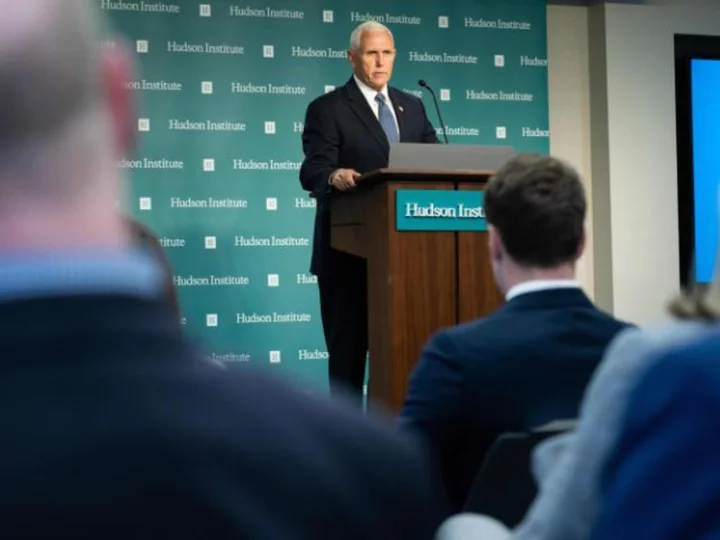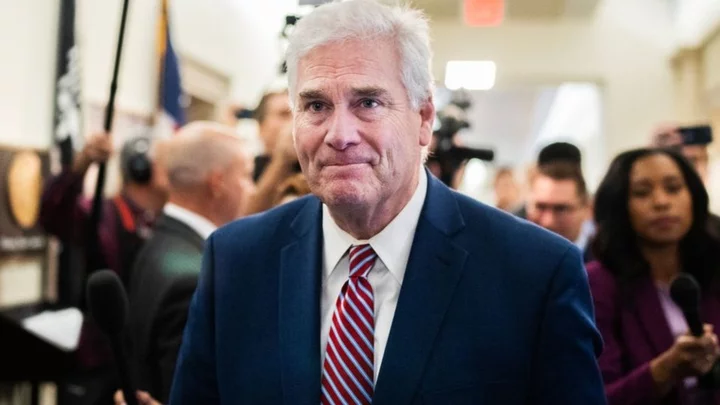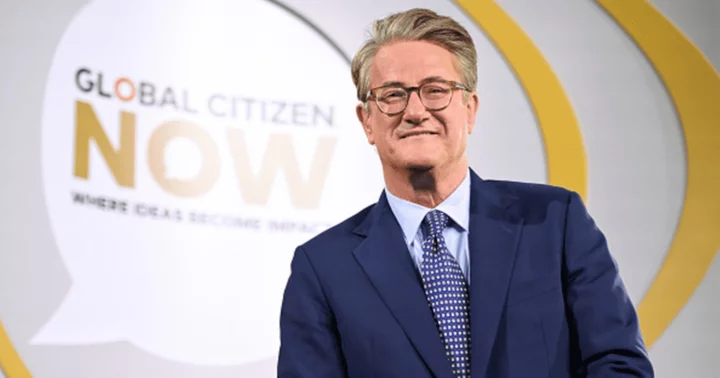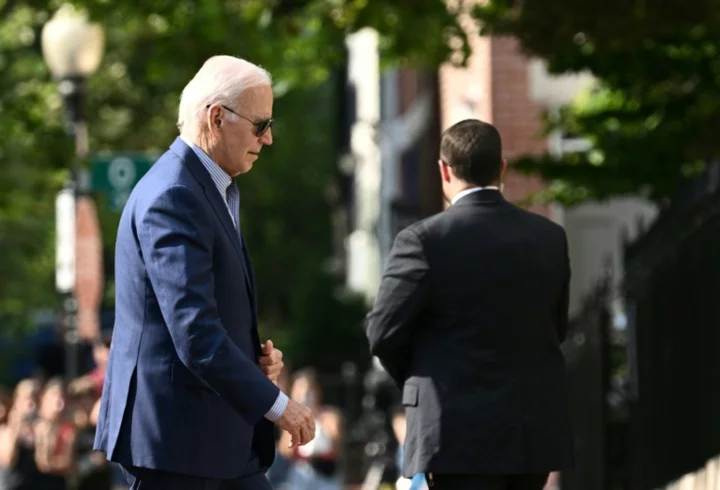When former Vice President Mike Pence delivered an expansive foreign policy speech Monday in which he laid out his vision, bashed President Joe Biden's handling of the Afghanistan withdrawal, and contrasted his views with those of other Republicans, he started with a focus on one country: China.
"China is the greatest strategic and economic threat facing the United States in the 21st century," Pence said in his speech at the Hudson Institute in Washington, DC. "And communist China is playing to win by any means necessary. China is our rival, our economic adversary, but whether China becomes our enemy depends on the choices American leaders make today."
Pence's speech is the latest example of 2024 Republican presidential primary candidates zeroing-in on China to demonstrate foreign policy bona fides and ding the Biden administration. Candidates often argue that China is not just a military threat, but also an economic one.
For months, China as a foreign policy adversary has been the favored topic of Republican primary candidates. Candidates have squabbled over who is the most hawkish on China, their campaigns have cut ads to underscore their positions, and they've given showy speeches to roll out their policy positions on the country.
"I think everybody who's running for political office should focus on that issue. It's the biggest issue affecting our security and safety. I wish the president would focus on it before it's too late," former Ambassador Scott Brown, who represented the United States in New Zealand and Samoa during the Trump administration, said in an email to CNN.
The early remarks of Pence's Monday speech were devoted singularly to China. He used his criticism of the country to criticize the current administration before pivoting to other hot-button subjects such as the war in Ukraine.
"I believe the weak and feckless leadership of Joe Biden has made the world a much more dangerous place," Pence said.
In July in New Hampshire, Florida Gov. Ron DeSantis released his campaign's economic policy proposals, which include ending China's preferential trade status, reversing the US' trade deficits with the country, and banning imported goods made from stolen intellectual property.
"The elites sold us a bill of goods when it came to China. They were wrong, and we need to get it right," DeSantis said in that speech.
A few weeks later, Sen. Tim Scott of South Carolina released a 30-second China-focused campaign ad that ties taking a hawkish approach on the country to countering the Biden administration.
"China is the biggest threat to America's security, emboldened by Joe Biden's weakness," Scott says in the ad. "They are buying up our farmland, spying on our kids, and stealing our jobs. As president, I'll keep China out of our homeland and out of our data. I'll protect American workers, and I will return our military to the fiercest fighting machine in the world."
More recently, former South Carolina Gov. Nikki Haley, who served as ambassador to the United Nations, made a point of spelling out how adversarial the relationship between the United States and China has become.
"China's been practically preparing for war with us for years," Haley told CNN's Jake Tapper on "The Lead" last week. "Yes, I view China as an enemy."
Haley has also used China as a way to frame Biden and Vice President Kamala Harris as weak and incompetent.
"Success for China is defeating America. I mean, China is an enemy. They've been preparing for war with (the) US for years. It is unbelievable to me how weak in the knees Joe Biden and Kamala Harris are when it comes to China," Haley said on "The Tudor Dixon Podcast."
Former President Donald Trump has used China as a favorite attack subject dating back to 2016.
During the worst days of the Covid-19 pandemic, Trump dug in against criticism directed at him for calling the coronavirus the "China virus."
Trump has used China to argue he has done more than other administrations. In a July op-ed in Newsweek about the Russia investigation, Trump writes he promised to "end the sellout of our country to Communist China."
There are other superpowers that the United States is in a near-or-total hostile relationship with, but China is a safe one to focus on in the GOP primary, said Republican strategist Maura Gillespie.
"Primarily, using China as an enemy is more favorable with the GOP than using Russia as an enemy," Gillespie said. She added that for candidates trying to appeal to far-right voters, "it's safer to attack China than Russia or Vladimir Putin because Trump did have weirdly admirable things to say about Vladimir Putin and, as we recently saw, Putin commenting on the indictments and investigations into the president only reinforces that."









